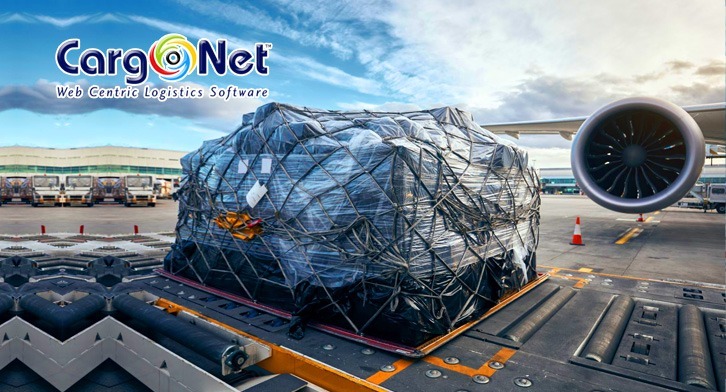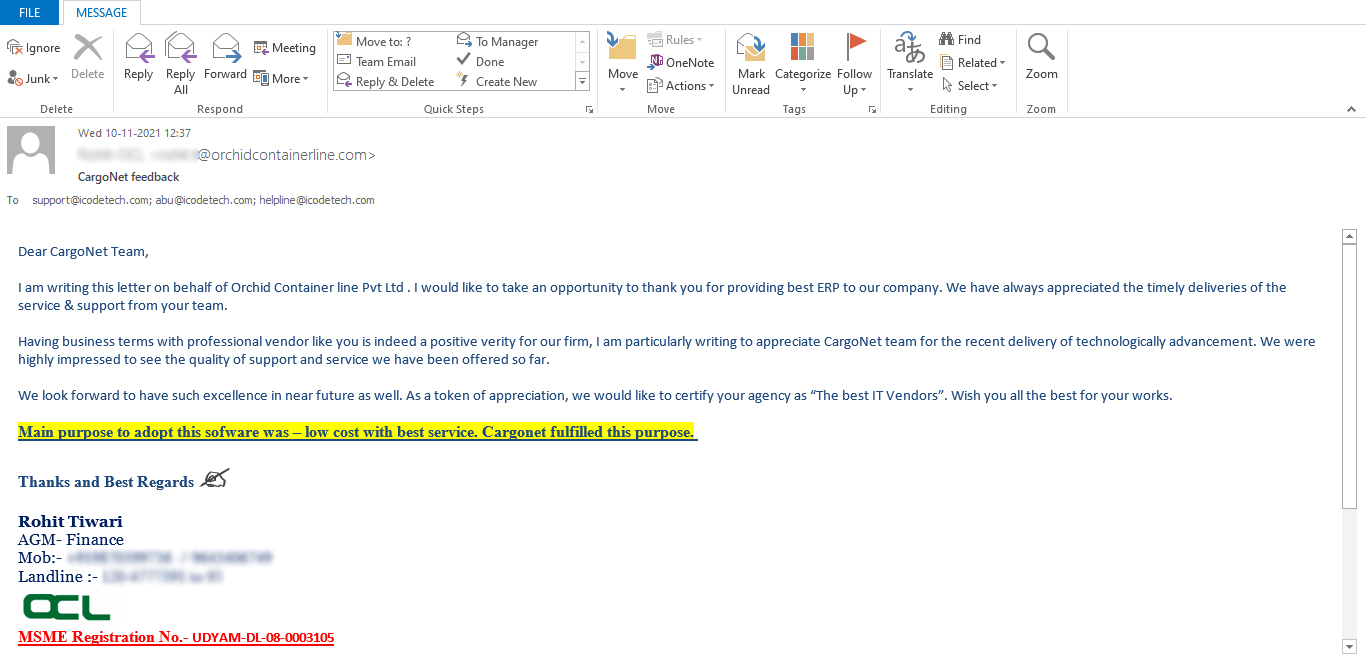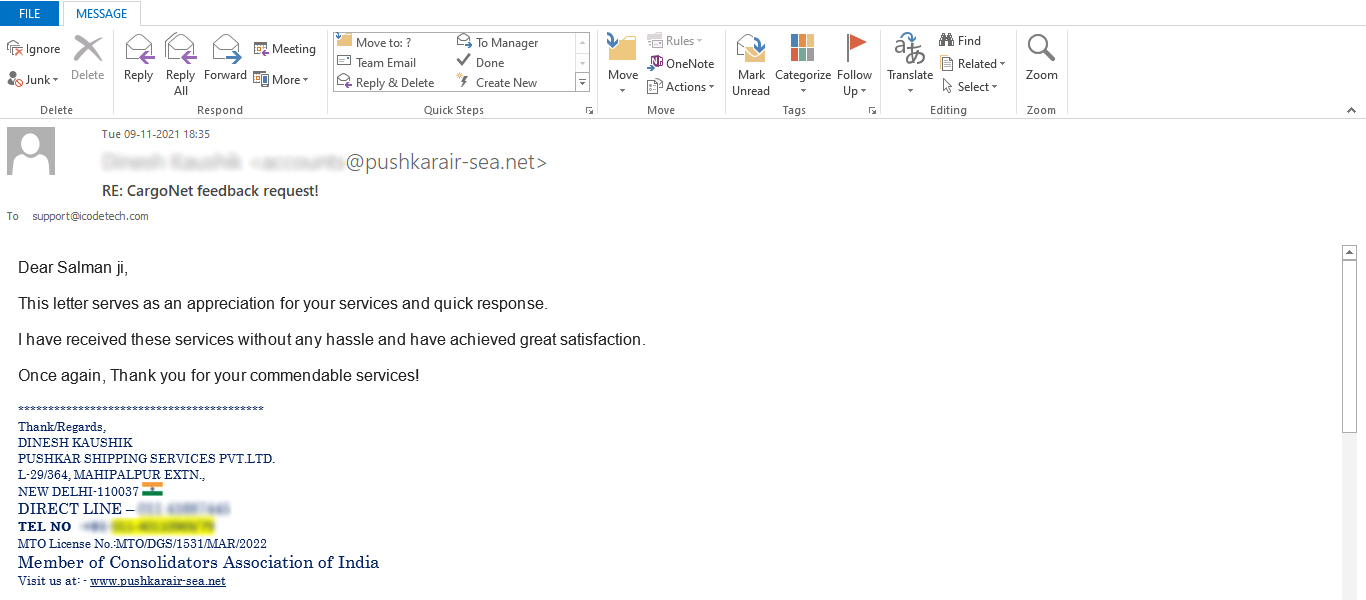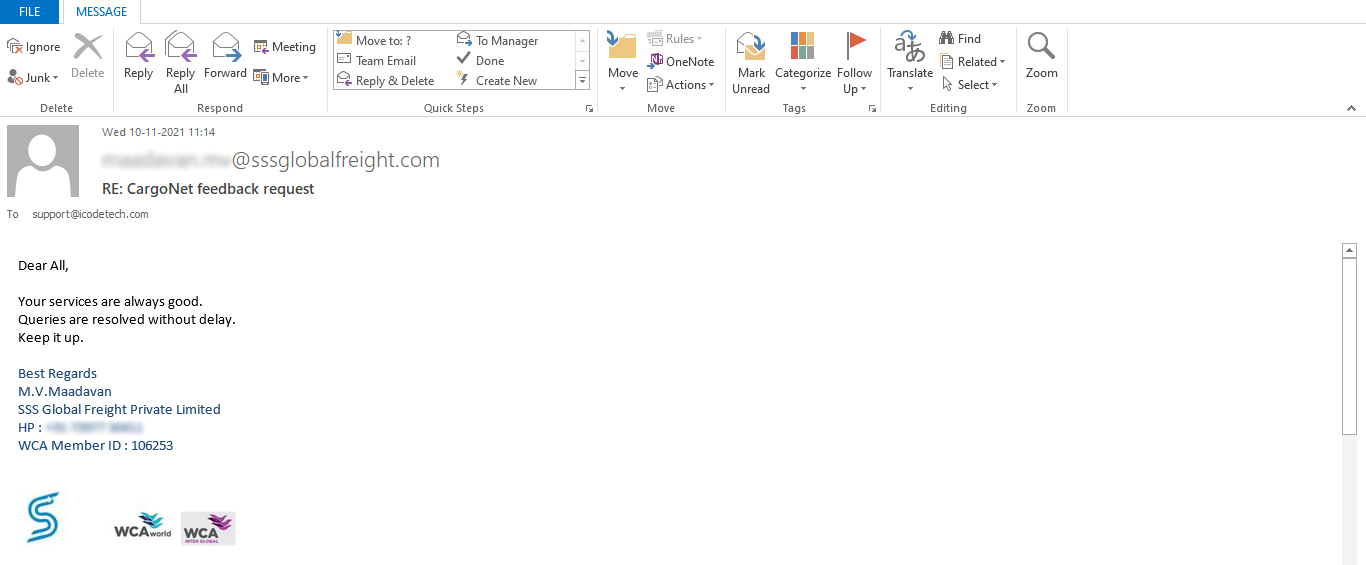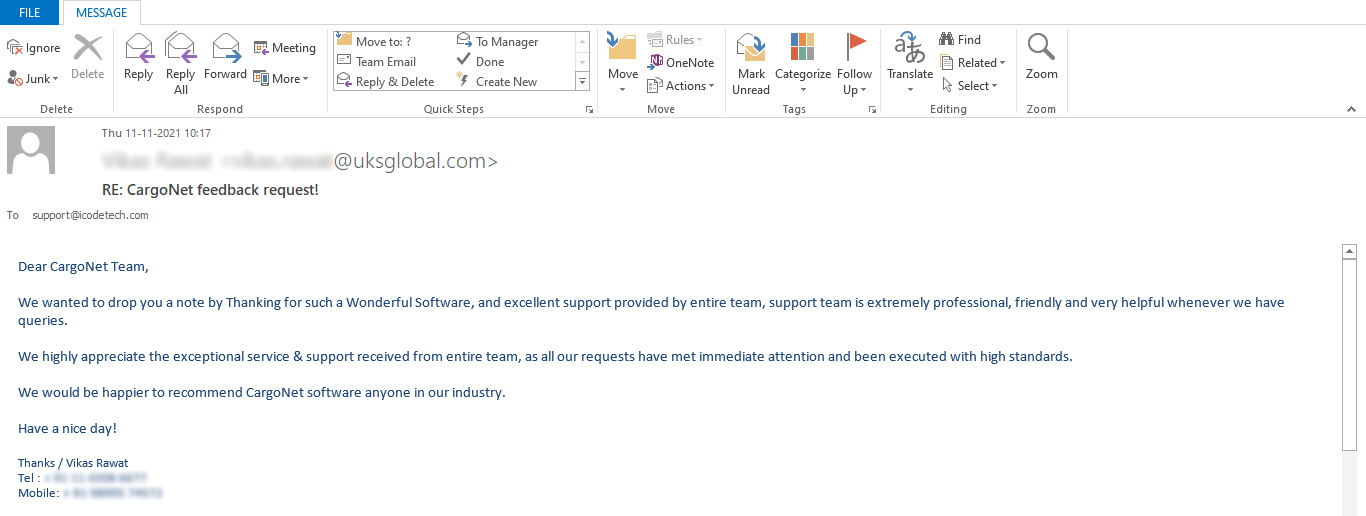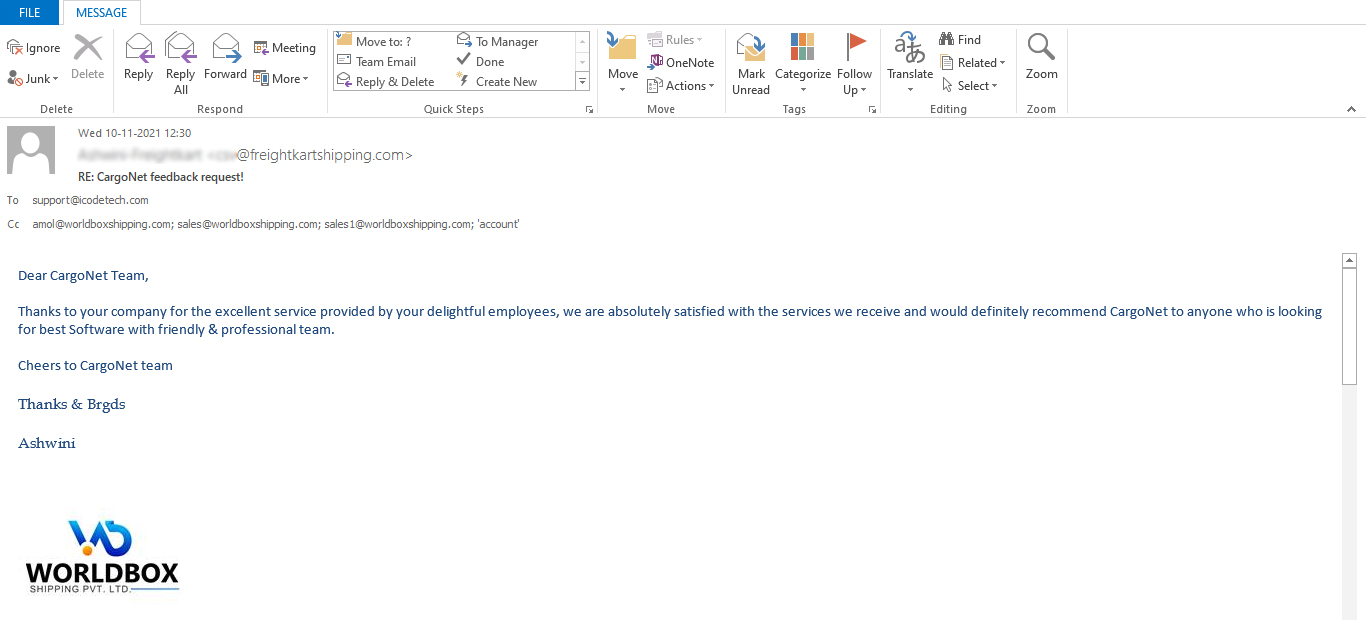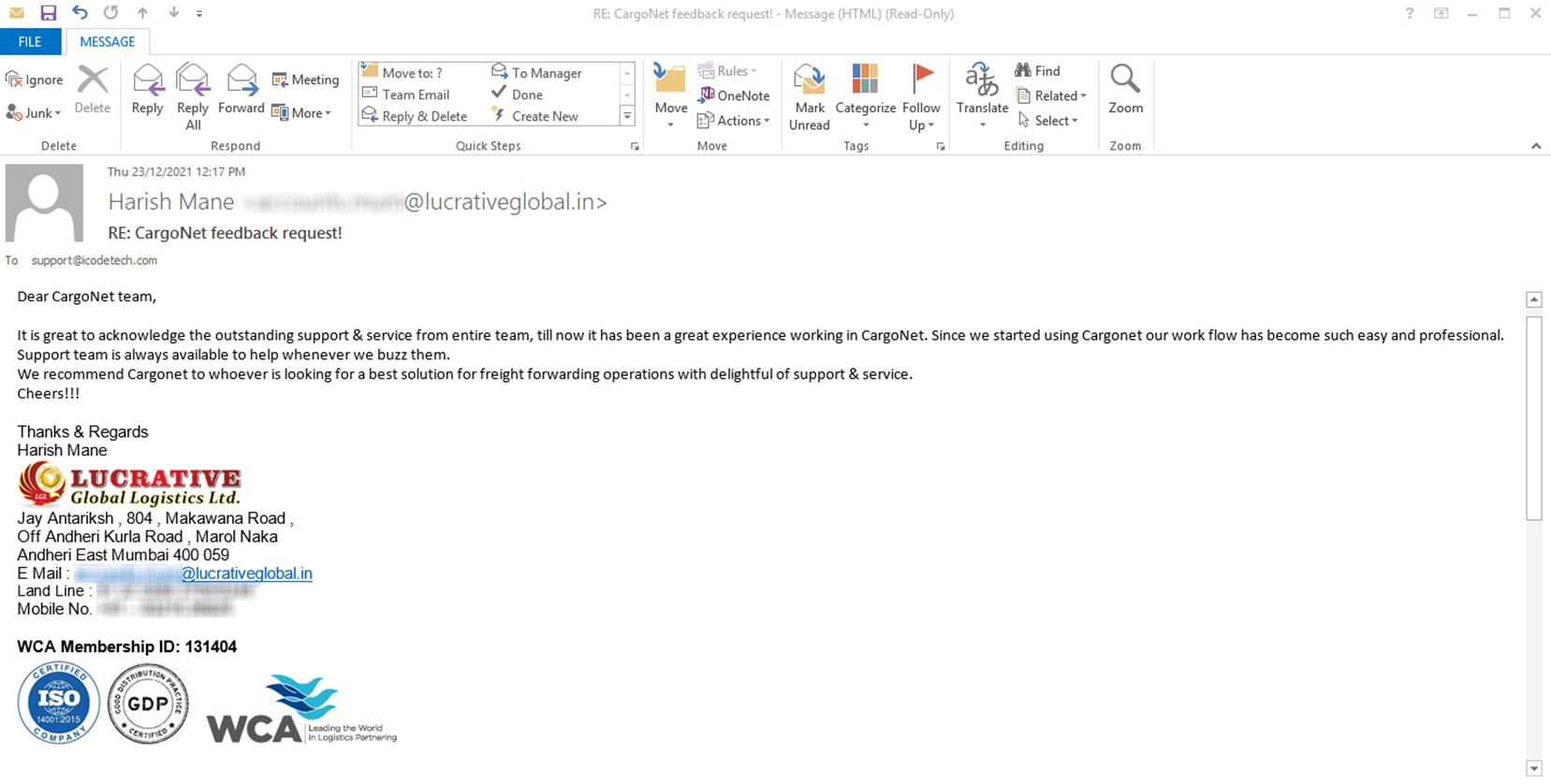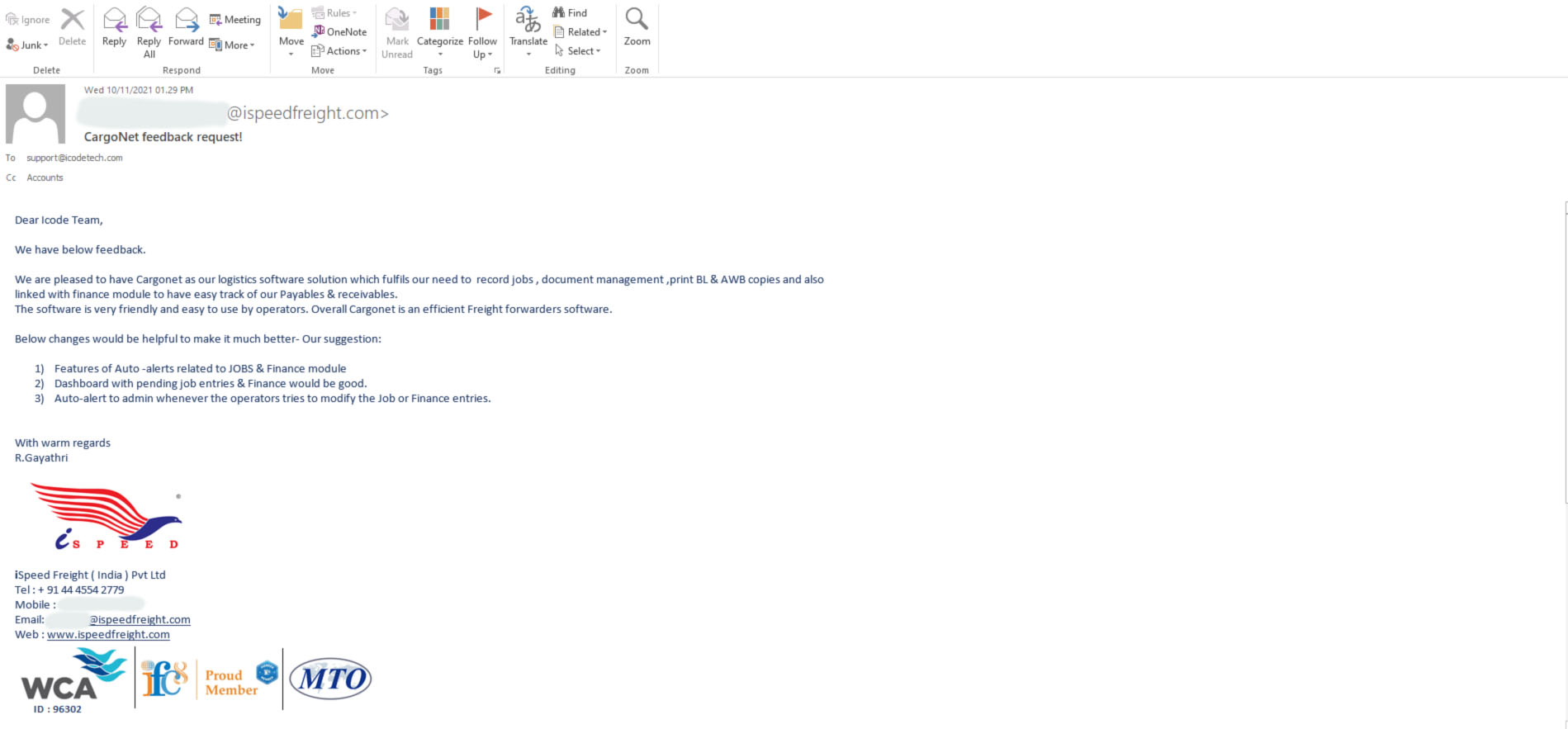In the dynamic world of air cargo, the shift from traditional Air Waybill (AWB) to electronic Air Waybill (e-AWB) marks a significant step towards modernization and efficiency. This transition not only streamlines operations but also reduces errors and enhances compliance. Let’s explore the key differences between AWB and e-AWB bill and how CargoNet, a leading IATA Agent Software, can help you embrace this digital transformation.
Traditional Air Waybill (AWB) Bill: The Old Way
1. Paper-Based Process:
Traditional AWB bill relies heavily on physical documents. Each shipment requires multiple copies of the AWB, which need to be manually filled out and signed.
2. Manual Data Entry:
The information for AWBs is manually entered, increasing the risk of human error. Mistakes in documentation can lead to shipment delays, additional costs, and compliance issues.
3. Storage and Retrieval:
Physical storage of AWBs requires significant space and can be cumbersome. Retrieving specific documents can be time-consuming and there is always a risk of loss or damage.
4. Compliance Challenges:
Ensuring compliance with regulatory standards can be more complex with paper-based processes. Updates to regulations require manual adjustments to procedures, which can be time-consuming and error-prone.
5. Limited Visibility:
Tracking and monitoring shipments through traditional AWBs can be less efficient, providing limited visibility and real-time updates.
6. Time-Consuming:
From filling out the AWB to handling and storing it, the entire process is labor-intensive and time-consuming, affecting overall efficiency.
Electronic Air Waybill (e-AWB) : The New Way
1. Digital Process:
e-AWB bill replaces physical documents with digital ones. All information is entered and stored electronically, eliminating the need for paper copies and simplifying the documentation process.
2. Automated Data Entry:
The e-AWB system automates data entry and validation, significantly reducing the risk of human error. This leads to more accurate and reliable documentation.
3. Easy Storage and Retrieval:
Digital documents are stored in centralized databases, making them easy to access, retrieve, and share. This enhances operational efficiency and reduces the risk of document loss.
4. Simplified Compliance:
e-AWB systems are designed to automatically comply with the latest IATA and international regulations. Updates to regulations can be implemented quickly and easily within the system.
5. Enhanced Visibility:
e-AWB systems provide real-time tracking and updates, giving stakeholders better visibility and control over shipments.
6. Time Efficiency:
The digital process of e-AWB bill is faster and less labor-intensive. It streamlines the entire workflow, from data entry to document handling and storage.
7. Environmental Impact:
e-AWB bill is more environmentally friendly, as it reduces the need for paper and the associated waste.
How CargoNet Enhances e-AWB Bill Software
CargoNet, a leading IATA Agent Software, leverages the advantages of e-AWB bill to transform air cargo operations. Here’s how CargoNet addresses the challenges of traditional AWB bill:
1. Automated Compliance:
CargoNet ensures that all e-AWB processes comply with the latest IATA regulations, reducing compliance risks and ensuring smooth operations.
2. Real-Time Updates:
CargoNet provides real-time tracking and updates, enhancing transparency and customer satisfaction by allowing stakeholders to monitor shipments accurately.
3. Error Reduction:
By automating data entry and validation, CargoNet minimizes the risk of errors, ensuring more accurate and reliable documentation.
4. Integration Capabilities:
CargoNet integrates seamlessly with existing systems, facilitating smooth transitions and efficient workflows. This makes it easier to adopt and benefit from e-AWB bill.
5. Enhanced Security:
CargoNet employs robust security measures to protect sensitive data, ensuring secure transactions and reducing the risk of data breaches.
6. User-Friendly Interface:
The intuitive interface of CargoNet ensures quick adoption by users, making the transition from traditional AWB to electronic Air Waybill e-AWB seamless and efficient.
Embrace the Future with CargoNet
By moving from traditional AWB bill to e-AWB bill with CargoNet, businesses can enhance operational efficiency, ensure compliance, and provide better service to their customers. The digital transformation brought by e-AWB bill simplifies processes, reduces errors, and boosts overall efficiency.
As the air cargo industry continues to evolve, staying ahead with advanced tools like CargoNet is essential. Embrace the future of air cargo management with e-AWB bill and experience the benefits of a digital, streamlined process. Ready to revolutionize your air cargo operations? Explore CargoNet today and take the first step towards a more efficient and compliant future.
Ready to revolutionize your air cargo operations? Explore CargoNet today and experience the benefits firsthand.


